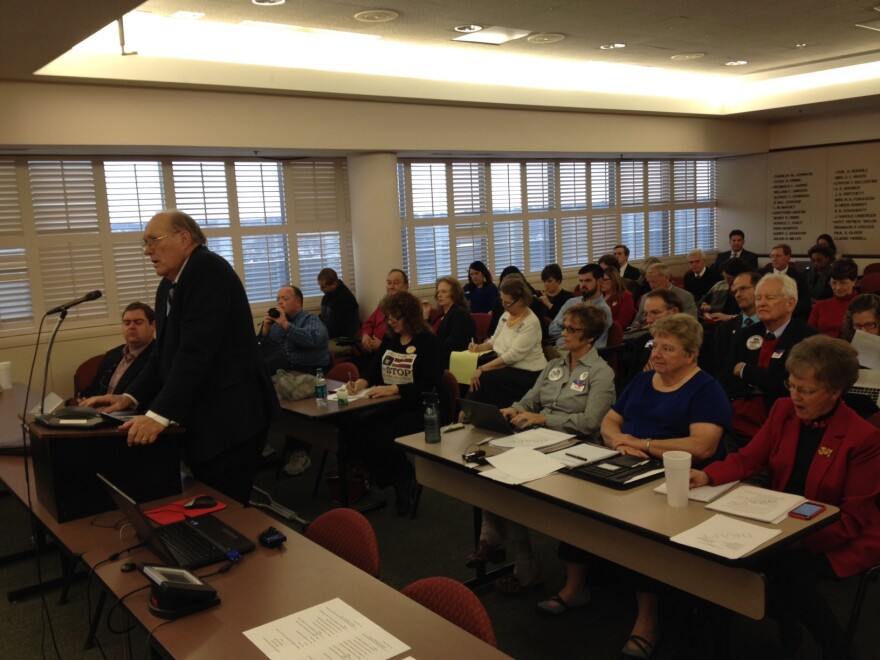The state commission charged with reviewing the Common Core voted yesterday on its final recommended changes to the state’s academic standards. But the final suggestions may be not be satisfactory to Common Core opponents in the legislature who want a total rewrite.
Considering some of the commission’s preliminary recommendations, the ones that made it into the final report were surprisingly moderate. The commission recommended revising the K-12 math and English language arts standards with attention to things like developmental appropriateness and clarity in the way a standard is written. But it offered no specifics as to which standards should be changed or how.
Commission co-chair Tammy Covil says she’s disappointed the final recommendations aren’t more specific, but that the 15 months members had to deliberate weren’t enough.
“Rather than do something haphazardly, we backed off of attempts to be too specific or even make specific recommendations of changes to specific standards and decided it was more productive to move forward with generalized recommendations," Covil said.
Raleigh high school math teacher Greta Lumsden was relieved the commission voted down its most sweeping recommendation—to scrap the K-8 math standards and adopt Minnesota’s.
“As teachers we have invested a lot of time, planning, creating curriculum to help implement these standards, and the taxpayers have invested a lot of money in this also," she said.
The commission also voted down a proposal to switch back to the traditional high school math sequence.
It approved recommendations to provide teachers with more professional development and teaching materials, and to better align tests to the revised standards.
But open-ended recommendations mean it’s unclear whether the commission has solved the problem it was created to address. J.B. Buxton is former North Carolina deputy superintendent and an education policy consultant. He says lawmakers who oppose the Common Core created the commission as a political fix.
"Standards review commissions in general, and North Carolina’s in particular, solve the political problem of getting more state buy-in and ownership of whatever standards come out at the end of the day," Buxton said.
North Carolina is one of 16 states, mostly in the southeast, that set up a group to review the Common Core standards. Buxton says lawmakers and members of the public didn’t feel state ownership of the standards when states adopted them to qualify for federal education grants. Most southern states ended up making minor revisions to the standards, but comments by Sen. Jerry Tillman (R-Randolph) to the commission before the vote suggest tweaks may not be enough to close the door on the issue in North Carolina.
"The bottom-line will be, Did you do a little makeover of common core to appease certain people? Or did you do a real rewrite?" he said.
The final recommendations will be made public next week and go on to the State Board of Education and the General Assembly for consideration. But Tillman says if they don’t go far enough, the legislature may take the standards into their own hands.
For a link to the preliminary recommendations that were voted on, click here. See page 39.












